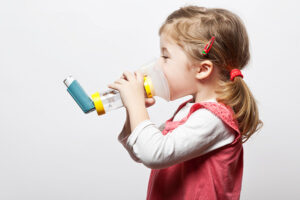
If your child has a medical condition they will get support from their school, to make sure they can access the same education as other children. This includes school trips and physical education sessions.
Managing your teenager's medical condition in school
Managing medical conditions in secondary school can bring extra challenges as young people move around within the school and there is no longer one classroom or teacher. It is important your teen knows how to access help and support if required, and there are steps you can take to make the process more organised.
- Discuss medical conditions and how these will be managed in school with school staff.
- Make sure an up-to-date healthcare plan is in place.
- Make sure your child is aware of where their medication including inhalers or adrenaline auto injectors are kept.
- Encourage your child to talk to their friends so they are also aware of any conditions your child has, like allergies or anaphylaxis.
Types of medical condition
Anaphylaxis is a severe, possibly life-threatening, rapidly-occurring allergic reaction. Anaphylaxis can be triggered by almost any substance in the environment, common allergens include nuts and bee stings, medicines such as antibiotics; as well other substances such as latex.
Allergic reactions range from flushing of the skin, outbreaks of hives, swelling of the skin anywhere on the body, to abdominal pain and nausea or vomiting. Allergic reactions should be monitored in case your child develops anaphylactic symptoms. Adrenaline auto-injectors must be used promptly in the event of anaphylactic reactions, to improve breathing, stimulate the heartbeat, and help reduce swelling around the face and lips.
As a parent you can ask your school to list allergens that your child could come into contact with at mealtime or arts and craft time, so that you can avoid them. Ask to see any risk assessments for your child’s time at school or during outings.
All children and young people with allergies should have a written management plan signed by a healthcare professional. You’ll need to make sure you make sure any medication for your child is given to the school in case they have a reaction.
Asthma is a chronic respiratory condition that causes swelling in the lungs.
It can produce a range of symptoms including a cough, a high-pitched wheeze, shortness of breath sometimes affecting speech, eating and sleep, difficulty in breathing and a feeling of tightness in the chest. Look out for children complaining of chest or stomach ache as well.
You can help get your child’s asthma under control by:
- encouraging them to use their inhaler devices and medication correctly
- understanding their medication, and when to use it
- avoiding triggers
- creating a healthy environment and encouraging an active lifestyle.
Asthma management plans are available to download from Asthma UK. They detail which medicines your child needs, what to do if your child’s asthma is getting worse, and what to do if your child has an asthma attack. You’ll need to make sure you make sure any medication for your child is given to the school in case they have an asthma attack.
Ibuprofen is not suitable for some children. To make sure it's safe for your child, check with a pharmacist or doctor before giving ibuprofen if your child has asthma.
Epilepsy is a common condition where sudden bursts of electrical activity in the brain cause seizures or fits. You can find more information on managing your child’s epilepsy from Epilepsy.co.uk.
A few simple strategies can help if your child is wetting or soiling themselves at school. Visit our day wetting or soiling pages for tips or contact Kent School Health for more support.
Here are some of the terms you may hear when it comes to the school managing your child’s condition.
Useful resources
- This leaflet has advice and information on supporting pupils with medical conditions at school.
- Allergyuk.org and Anaphylaxis.org are both useful websites offering support to those families living with allergies.
- Asthma UK has some useful information including demonstration videos on using an inhaler effectively.
- Young.epilepsy.org has some great support for young people with epilepsy.